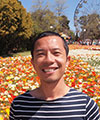Creating an enabling environment: regional networks and community organisations are leading the way
Creating an enabling environment: regional networks and community organisations are leading the way
HIV Australia | Vol. 12 No. 2 | July 2014
Community organisations and networks are essential to achieving effective HIV responses, and a diverse, strong and active civil society is leading the way in Asia and the Pacific.
Community organisations and networks are essential to achieving effective HIV responses, and a diverse, strong and active civil society is leading the way in Asia and the Pacific.
The Australian Federation of AIDS Organisations (AFAO) operates an International Program based in Bangkok, which implements advocacy, capacity building and community mobilisation projects in collaboration with key regional networks and organisations throughout the Asia and Pacific regions.
Below, some of AFAO’s key community partners working across Asia and the Pacific have submitted brief statements to welcome delegates attending AIDS 2014 to our region.
Asia Pacific Council of AIDS Service Organizations (APCASO)
 By Moi Lee Liow, Executive Director, APCASO
By Moi Lee Liow, Executive Director, APCASO
In recent years, there have been many success stories in response to HIV and AIDS across Asia and the Pacific. There is progress in areas such as reducing new infections, expanding antiretroviral (ART) coverage, increasing domestic financing, and attempts by governments to address stigma and discrimination.
In this region, civil society and community leadership – among the most dynamic, prevalent and organised in the world – is credited with contributing to this success. APCASO is confident that we have made some valuable contributions to this enviable situation, working to strengthen community capacity to engage in national processes and advocate at the national and regional level.
APCASO’s partnership with AFAO is an example of a productive and synergistic North-South collaboration. AFAO has also provided APCASO with valuable technical support that has enabled us to do our work better, with improved linkages to global policy and technical knowledge.
From the initial APCOM and AFAO partnership on the AusAID HIV/ AIDS Partnership Initiative (AHAPI) program in 2006 to the current Community Advocacy Initiative (CAI) program, dozens of community-based organisations in Cambodia, China, India, Indonesia, Laos and Vietnam have gone through a dedicated capacity-development process of coaching, mentoring and training that has progressed and increased advocacy and effective engagement in strategic areas such as domestic HIV financing and investments, human rights of key populations, and employment discrimination affecting people living with HIV.
Some of these issues will be discussed at sessions in Melbourne. In spite of many success stories, Asia and the Pacific still has many pockets of resistance affecting key populations, in particular men who have sex with men (MSM), people who use drugs, sex workers and transgender communities.
Recognising this, the CAI program has adopted an inclusive approach to ensure these communities take centre stage in CAI program activities. At the 2014 International AIDS Conference in Melbourne this July, 25 community advocates and activists from APCASO partner organisations will participate in the Australia Awards Fellowships (AAF) program.
The AAF will strengthen participants as effective leaders in their work towards equal community partnerships in their country’s HIV response. The results of investments in an enabling environment are informed, empowered and committed community leaders.
To learn more about Australia Awards Fellowships programs, see Enhancing partnerships across the region: Australia Awards Fellowships and Community engagement for improved outcomes for HIV/AIDS in Myanmar in this edition of HIV Australia.
Asia Pacific Coalition on Male Sexual Health (APCOM)
 By Midnight Poonkasetwattana, Executive Director, APCOM
By Midnight Poonkasetwattana, Executive Director, APCOM
Welcome to the Asia-Pacific region!
It’s been ten years ago since the International AIDS Conference was held in our region, in Bangkok in 2004.
At the time the response to HIV among men who have sex with men was in its infancy – indeed it was not until 2007 that APCOM (Asia Pacific Coalition on Male Sexual Health) was formed to highlight the need to address rising HIV transmission rates among men who have sex with men.
As a coalition, APCOM recognises the need to work in collaboration across different sectors and organisations to effectively address HIV issues; this includes working together with civil society, development agencies, government, United Nations system and technical experts.
In order to truly address the challenge of HIV, we need to work together towards creating an ‘enabling environment’ to confront stigma, discrimination, violence and social exclusion of men who have sex with men and transgender people.
The promotion and protection of rights to life-saving health services is crucial, as is investment in the response – especially the resourcing of community organisations.
Of key and fundamental importance is the involvement of men who have sex with men and transgender people in framing and implementing responses to prevent and treat HIV, improve sexual health, and reduce stigma and discrimination.
We hope you have an opportunity to get to know our work in the region through our booth in the AIDS 2014 Global Village, or by attending our sessions at the conference.
Asia Pacific Transgender Network (APTN) – Making Trans people count in the HIV/ AIDS Response
 By Joe Wong, Project Manager, APTN
By Joe Wong, Project Manager, APTN
Social researchers estimate that the number of transgender people living in Asia and the Pacific is approximately 9–9.5 million; however, the actual population size remains undetermined.
Transgender people are an integral part of the traditional culture of several countries in Asia and the Pacific and in some settings hijra, waria, kathoey and fa’afafine have been accepted into traditional daily life.
Discrimination remains entrenched, however, with transmen and transwomen encountering a wide range of challenges in accessing equitable healthcare – including to general and transitional mental health care and sexual health care.
The challenges facing transmen are not generally acknowledged and are under-researched. Discrimination and the lack of societal acceptance, understanding and support of gender identification and varied sexual orientation remain persistent barriers for transgender people exercising the right to access health, education, employment and social services.
Transgender people, in particular transgender women, face higher risk of HIV infection – 49 times higher than that of the general adult population,1 with many engaging in sex work or transactional sex because of employment discrimination and lack of economic opportunities.
Data from countries in the region, for example, Thailand, shows that transgender women have high rates of substance use. The Asia-Pacific Transgender Network (APTN) and United Nations Development Programme (UNDP) 2012 report, Lost in Transition – Transgender People, Rights and HIV Vulnerability in the Asia-Pacific Region, suggests that HIV prevalence rates are as high as 68% among transgender communities.2
Information from one South East Asian city indicated that between 2003 and 2007 HIV prevalence among transgender people rose from 25% to 34%.3 Little is known about incidence and prevalence among transgender men in the region.
Transgender people are rarely included as a separate key population in national HIV biological and behavioural surveillance or population size estimation exercises, limiting opportunities to respond effectively. Improved evidence and data are crucial to inform effective programming that meets the real needs of transgender communities in Asia and the Pacific.
The mission of APTN is to enable transgender women and men in Asia and the Pacific to organise and advocate for improvements to health, protection of legal, social and human rights, and enhancement of social wellbeing and quality of life.
In February 2014, APTN organised its second major regional consultation, designed to review the situation of transgender people and identify areas for accelerated action. The following priorities were identified by community leaders:
- increase healthcare provision and access
- reduce stigma and discrimination in healthcare provision
- expand quality training for health and other key service providers working with transgender people
- produce and disseminate content appropriate and specific information to health and other service providers on transgender issues.
Transgender health needs (mental, transition, sexual and general healthcare) must be addressed holistically and comprehensively and linked to the broader context of economic empowerment through providing meaningful employment opportunities and access to education, as well as access to and enjoyment of social protection benefits.
APTN continues to work for the rights and recognition of transgender people through rights based advocacy, policy influencing, and engagement with community organisations at the regional and country level, ensuring that stakeholders and partners have the evidence, understanding and alliances necessary to enable transgender communities across Asia and the Pacific to design and lead an effective response to HIV.
Youth Voices Count (YVC)

 By Lieu Anh Vu (top), Interim Network Officer, YVC and Phillip Salvador, Interim Project Officer, YVC
By Lieu Anh Vu (top), Interim Network Officer, YVC and Phillip Salvador, Interim Project Officer, YVC
As data in Asia and the Pacific continues to indicate that young men who have sex with men and transgender people are at high risk of HIV infection, it is imperative that attitudes, policies, and practices continue to stimulate and support effective and efficient functioning of organisations and individuals working on issues surrounding HIV and other health services.
In urban meccas such as Bangkok, Thailand, Ho Chi Minh City, Vietnam, and Chongqing, China, young men who have sex with men have high HIV prevalence rates, with the primary mode of transmission being unprotected sex.
Young people face additional barriers to accessing services due to criminalisation of male-to-male sex in 19 out of 38 countries in the Asia-Pacific region,4 the non-recognition of gender identity of transgender people, and intense stigma and discrimination in their environments.5
HIV prevalence has been increasing among young transgender people over the past several years,6 indicating that young transgender people remain an invisible population whose needs are not being addressed.
Laws that require parental consent to obtain HIV testing and counselling for young people under 18 in some countries in the region continue to create widespread challenges for young people attempting to access health services.
In addition, men who have sex with men and transgender people aged 18–297 report facing unique self-issues and intense self-stigma, which further increase their HIV vulnerabilities.
When we talk about stepping up the pace in reversing the HIV epidemic, we must also guarantee that platforms for young key populations exist and are working.
Youth Voices Count, a youth initiative led by young men who have sex with men and transgender people, has been at the forefront of giving a loud voice and a proud face to the issues that directly affect young men who have sex with men and transgender people by way of advocating, mainstreaming, and providing a regional platform for the network’s strong membership in 19 countries around Asia and the Pacific.
These efforts will not be fully realised unless we ensure a working enabling environment is created and sustained.
References
1 Baral, S., Poteat, T., Strömdahl, S., Wirtz, A., Guadamuz, T., Beyrer C. (2013). Worldwide burden of HIV in transgender women: a systematic review and metaanalysis. The Lancet Infectious Diseases, 13(3), 214–22.
2 Asia Pacific Transgender Network (APTN) and United Nations Development Programme (UNPD). (2012). Lost in Transition: Transgender People, Rights and HIV Vulnerability in the Asia-Pacific Region. UNDP, Thailand.
3 ibid.
4 Joint United Nations Programme on HIV/AIDS (UNAIDS). (2011). HIV in Asia and Pacific: Getting to Zero. UNAIDS, Bangkok.
5 Altman D., Aggleton, P., Williams, M., Kong, T., Reddy, V., Harrad, D., et al. (2012). Men who have sex with men: stigma and discrimination. The Lancet, 380(9839), 439–45.
6 Unpublished data. UNICEF, KAP report, forthcoming November 2011.
7 18–29 is the age range used by Youth Voices Count.

